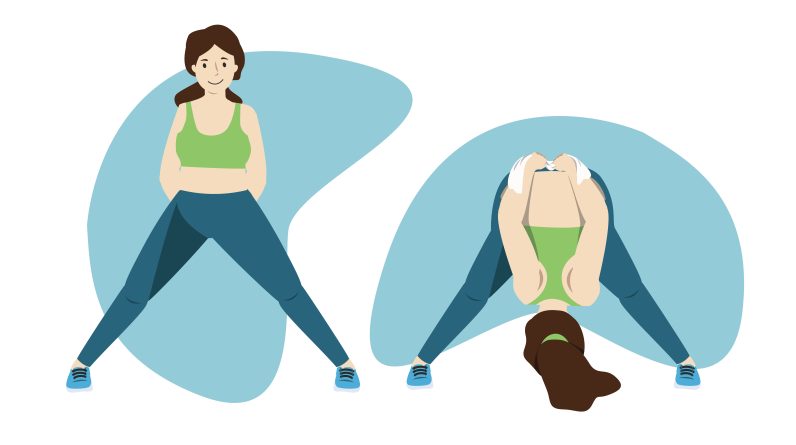In the world of fitness and exercise, we often focus on diet, training routines, and supplements as the key factors for achieving peak performance. However, one crucial element that often goes overlooked is . The quality and quantity of sleep you get can significantly impact your workout performance. In this article, we’ll explore the intricate connection between sleep and exercise and why prioritizing a good night’s rest should be a fundamental part of any fitness regimen.
The Sleep-Exercise Relationship
Sleep and exercise are not isolated aspects of our lives; they are interwoven in a complex relationship that can either enhance or hinder our fitness goals. To understand this connection better, let’s delve into the ways influences workout performance.
Energy Levels
The most apparent link between sleep and exercise is energy. is essential for replenishing energy stores in the body, primarily through the restorative deep sleep stages. When you’re well-rested, you wake up feeling energized and ready to tackle your workouts. Conversely, insufficient can leave you fatigued, making exercise feel like an uphill battle.
Muscle Recovery
Exercise, especially strength training and intense workouts, causes micro-tears in muscle fibers. These tears are repaired and strengthened during , particularly during deep sleep stages. Inadequate can impede this repair process, leading to slower muscle recovery and potential overuse injuries.
Hormonal Balance
plays a crucial role in regulating hormones like cortisol, which can increase with sleep deprivation. Elevated cortisol levels can lead to muscle breakdown, hinder muscle growth, and increase fat storage, all of which are counterproductive to workout goals. On the other hand, contributes to the release of growth hormone, aiding muscle repair and growth.
Cognitive Function
Exercise requires focus, coordination, and mental endurance. A lack can impair cognitive function, making it challenging to perform exercises correctly and safely. Additionally, sleep-deprived individuals may lack the motivation and mental resilience needed to stick to their workout routines.
Immune System
Intense workouts can temporarily weaken the immune system. Sleep, however, is essential for immune function, and a well-rested body is better equipped to fend off illness and inflammation. This means fewer interruptions to your training due to sickness.
Optimizing Sleep for Better Workouts
Understanding the significance in your fitness journey is one thing, but knowing how to optimize your sleep patterns is another. Here are some practical tips to ensure you’re getting the most out of your rest:
- Consistent Sleep Schedule: Go to bed and wake up at the same time every day, even on weekends. Consistency helps regulate your body’s internal clock.
- Create a Relaxing Bedtime Routine: Wind down before with calming activities like reading, gentle stretching, or meditation to signal to your body that it’s .
- Limit Screen Time: The blue light emitted by screens can interfere with your sleep-wake cycle. Try to avoid screens at least an hour before bedtime.
- Optimize Sleep Environment: Make your bedroom conducive by keeping it dark, quiet, and cool. Invest in a comfortable mattress and pillows.
- Watch Your Diet: Avoid large meals, caffeine, and alcohol close to bedtime, as these can disrupt sleep.
- Regular Exercise: Engaging in regular physical activity can promote better sleep. However, avoid intense workouts close to bedtime, as they may have the opposite effect.
Weight Management
For those pursuing weight loss or weight maintenance as part of their fitness goals, plays a pivotal role. Sleep deprivation can disrupt the balance of hunger-regulating hormones, leading to increased cravings for high-calorie, sugary foods. Moreover, poor sleep can hinder your body’s ability to process and store carbohydrates effectively, potentially contributing to weight gain. Ensuring you get enough can help you make healthier dietary choices and support your overall weight management efforts.
Long-Term Health
Beyond immediate workout performance, the relationship between sleep and exercise extends to long-term health outcomes. Consistent poor sleep habits have been linked to an increased risk of chronic health conditions such as heart disease, diabetes, and obesity. Regular exercise can certainly mitigate some of these risks, but when combined with sufficient , the potential for improving overall health is maximized. Prioritizing both exercise and can be a powerful strategy for enhancing your well-being and longevity.
Mood and Motivation
Sleep also has a profound impact on your mood and motivation, both of which are essential for a successful workout regimen. deprivation can lead to irritability, increased stress levels, and a negative mindset, making it harder to find the motivation to exercise. On the contrary, a well-rested individual is more likely to approach their workouts with a positive attitude and a can-do mindset. This mental state can lead to more productive and enjoyable exercise sessions, ultimately contributing to better workout performance.
In the pursuit of peak workout performance, don’t underestimate . It affects your energy levels, muscle recovery, hormonal balance, cognitive function, immune system, mood, motivation, weight management, and long-term health. Incorporating healthy sleep practices into your fitness routine is not an option but a necessity. Remember that sleep and exercise are partners in your journey towards a healthier and fitter you. By prioritizing both, you can unlock your full potential and achieve your fitness aspirations while safeguarding your overall well-being.






